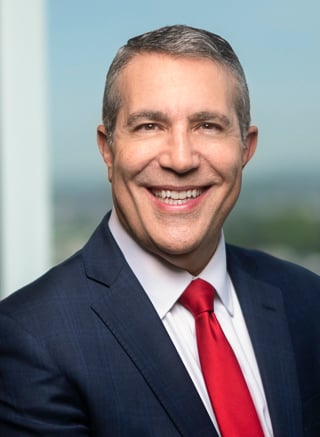A.J. Bahou Featured in Best Lawyers on Defining the Legal Future of AI
Best Lawyers
Bradley attorney A.J. Bahou was featured in a Best Lawyers article discussing his perspective on how artificial intelligence (AI) is evolving and impacting the legal landscape. Bahou, who was an inaugural honoree for Artificial Intelligence Law in the 2026 edition of The Best Lawyers in America®, was asked to reflect on the legal dimensions of this rapidly advancing technology.
Bahou sees several pressing client concerns, including whether organizations should allow employees to record meetings and transcribe them with AI — a practice that can exponentially increase the amount of discoverable data in litigation. Clients also question what policies to adopt if they allow limited meeting recordings. They want to know how long audio or video files should be retained and what happens if an AI-generated transcript contains errors.
Bahou, who focuses on organizational governance and vendor contracts, points to the need for safeguards in AI tools before deployment, citing a recent incident in which a coding agent deleted a user’s database without permission — an example he describes as “Vibe Coding” going off the rails. When negotiating an AI vendor contract, he says, it’s important to ask why liability is limited and to ensure the agreement requires regular testing of the tool before it’s deployed. For him, mitigation starts with anticipating risks at the contracting stage.
Bahou also has encountered misconceptions that can distort decision-making. He highlights a false assumption that speed and volume equal accuracy. “A common misunderstanding is assuming that a powerful tool is perfect,” he says. Because large language models draw from massive internet datasets, they can reproduce errors or outdated information just as easily as generating “made up” law.
That makes it critical for attorneys to review each case and confirm that citations are accurate and still valid. He notes that obligations like Rule 11 remain unchanged, and lawyers cannot rely on AI outputs without independent verification.
Looking ahead, Bahou sees the legal profession playing a decisive role in how AI is integrated into society. He places emphasis on how lawyers will shape the broader rules that govern AI and points to ongoing copyright litigation as an example of the profession’s influence on future standards. “Lawyers should zealously advocate for a balanced approach to fair compensation while promoting the progress of AI development,” he explains. For him, the task is to ensure that legal outcomes neither stifle innovation with overly restrictive rulings nor allow unchecked use that exploits creators.
The full article, “Defining the Legal Future of AI: Interviews with Best Lawyers Honorees,” was published by Best Lawyers on August 22, 2025.

